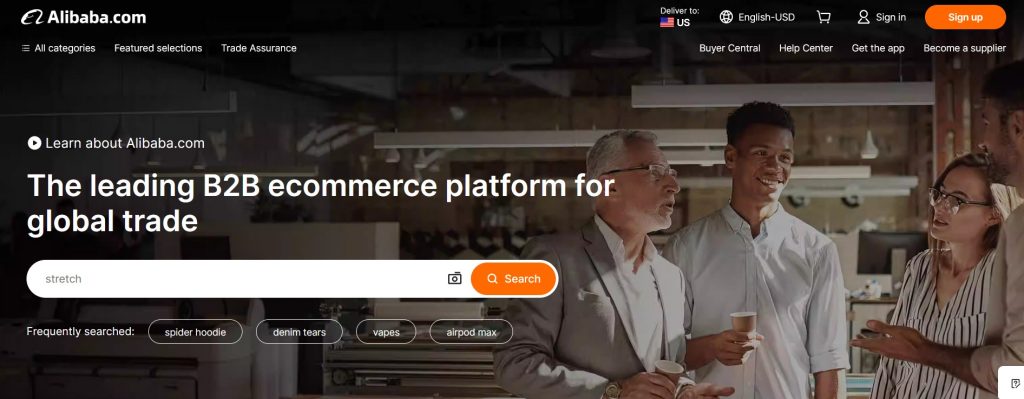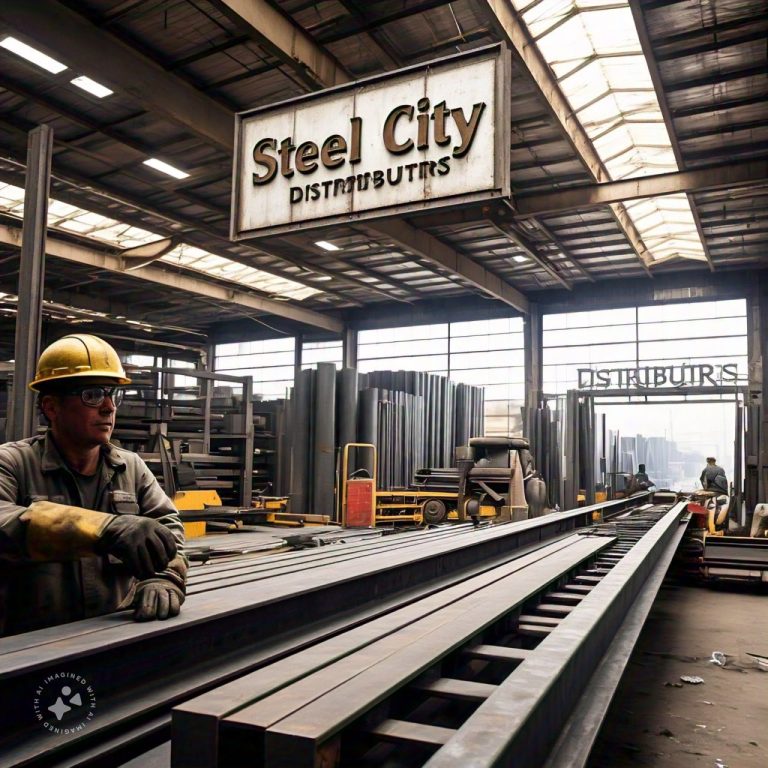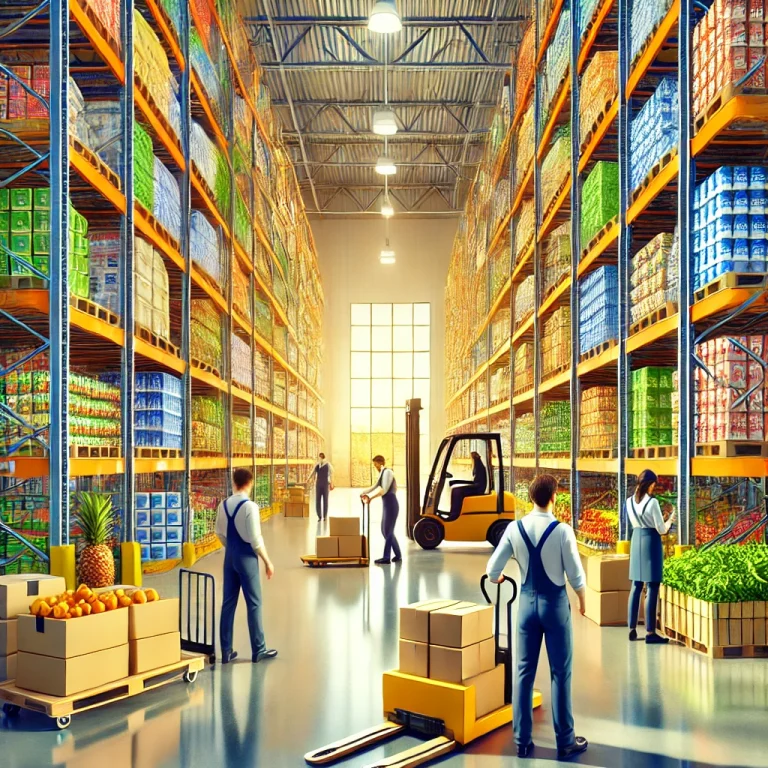India, with its vibrant economy and entrepreneurial spirit, is home to over 65 million Micro, Small, and Medium Enterprises (MSMEs). These MSMEs contribute an impressive 30% to the country’s GDP and account for 45% of total merchandise exports (Ministry of MSME). Despite their significant contribution, MSMEs in India struggle to achieve growth beyond their local markets. The problem lies not in their potential but in the absence of a robust Business Distribution Channels – B2B distribution infrastructure. This article explores why India needs a digital platform, akin to Alibaba, to empower MSMEs and transform their growth trajectory.
The Current Challenges Faced by MSMEs in India
- Limited Market Reach
Most MSMEs in India are confined to catering to local markets. Without access to distribution networks, these businesses cannot expand to regional or national markets. This limited market reach stifles growth, resulting in stagnant sales and reduced profitability. - Reliance on Distributors
Distributors play a crucial role in the B2B ecosystem, connecting manufacturers with wholesalers, retailers, and end users. However, Indian distributors are often risk-averse, preferring established national brands over new or lesser-known ones. They prioritize quick returns on investment over the risk of onboarding new brands, leaving MSMEs with little support to scale. - D2C Brands Struggle to Scale
Direct-to-consumer (D2C) brands in India face similar challenges. While they begin by selling directly to customers, growth becomes limited without transitioning to the B2B market. The absence of accessible wholesale and retail channels prevents these brands from scaling up effectively. - Fragmented and Unorganized Distribution Market
India’s distribution market is highly fragmented and lacks organization. This makes it difficult for MSMEs to connect with wholesalers, retailers, or retail chains across the country. Traditional methods of finding distribution partners are time-consuming and inefficient.
The Role of Wholesalers and Retailers in MSME Growth
While distributors are essential, MSMEs can benefit significantly by partnering with wholesalers and larger retail chains.
- Wholesalers offer an excellent entry point for MSMEs looking to enter the B2B market. Unlike distributors, wholesalers are less risk-averse and more open to onboarding new brands. They operate without the need for long-term contractual obligations, making them a practical choice for small businesses.
- Retailers and retail chains provide another potential avenue. Retail chains often prefer working with manufacturers directly, but accessing these channels remains a challenge for MSMEs due to the lack of a centralized platform.
Why India Needs a Digital B2B Platform
India’s fragmented distribution market requires a digital B2B platform that can connect MSMEs with wholesalers, distributors, and retailers seamlessly. A platform like Alibaba could address the following critical issues:
- Market Connectivity
A digital marketplace would bridge the gap between MSMEs and wholesale buyers, enabling businesses to reach pan-India markets without relying solely on traditional distribution channels. - Efficient Transactions
By providing access to verified wholesalers, retail chains, and distributors, such a platform could streamline B2B transactions and reduce inefficiencies. - Lower Costs
Digital platforms eliminate the need for middlemen, reducing costs and improving margins for MSMEs. They also provide transparency in pricing, ensuring fair deals for buyers and sellers alike. - Global Reach
A robust digital platform could also help Indian MSMEs reach international markets, similar to how Alibaba has enabled Chinese SMEs to export their products worldwide.
Lessons from China: How Alibaba Transformed SMEs
China’s 52 million SMEs contribute approximately 60% to the country’s GDP, thanks to the support of digital B2B platforms like Alibaba, DHGate, and Tencent. These platforms have revolutionized the way small businesses operate, enabling them to sell not just within China but across the globe.
Alibaba, in particular, serves as a model for India. It provides SMEs with access to:
- A vast network of buyers, wholesalers, and retailers.
- Digital tools for inventory management, payment processing, and logistics.
- Opportunities for global trade, opening markets previously inaccessible to small businesses.
The success of Alibaba highlights the transformative potential of a well-designed digital B2B marketplace.

The Limitations of Current Initiatives Like ONDC
The Indian government launched the Open Network for Digital Commerce (ONDC) to promote e-commerce, initially focusing on the retail sector. While ONDC expanded to the B2B segment in June 2023, its impact remains limited. Key issues include:
- Operational Inefficiencies: ONDC suffers from delays and bureaucratic challenges typical of government-led projects.
- Limited Adoption: The platform is yet to gain significant traction among MSMEs and wholesalers.
To truly support MSMEs, India needs a private-sector-led initiative or a public-private partnership to build a platform that rivals Alibaba in scale and functionality.
Building an Alibaba for India: Key Considerations
For a digital B2B platform to succeed in India, the following elements are essential:
- Comprehensive Buyer-Seller Network
The platform must connect MSMEs with distributors, wholesalers, and retailers across India, ensuring easy access to a wide network of buyers and sellers. - Logistics and Payment Solutions
Integrated logistics and payment processing tools can simplify operations for small businesses. - Policy Support
The government must create an enabling environment by simplifying regulations and easing domestic and cross-border trade processes. - User-Friendly Technology
The platform should be easy to use, even for MSMEs with limited digital literacy. Features like language options, simple onboarding processes, and customer support can drive adoption.
The Way Forward: Unlocking the Potential of MSMEs
India has the potential to replicate China’s success by developing a digital B2B marketplace tailored to the needs of its MSMEs. Such a platform could:
- Empower small businesses to expand beyond local markets.
- Drive growth in sectors like manufacturing, textiles, and handicrafts.
- Boost India’s exports by enabling MSMEs to reach international buyers.
To achieve this, both the government and private sector need to collaborate in building the infrastructure required for a robust B2B ecosystem.
Conclusion
India’s MSMEs are a vital engine of economic growth, but their potential remains untapped due to systemic challenges in the distribution and B2B market. A digital platform like Alibaba could transform the landscape, connecting MSMEs with wholesalers, distributors, and retailers across India and beyond.
It’s time for India to build its own Alibaba and unleash the true potential of its small businesses. With the right policies and a strong digital infrastructure, India’s MSMEs can drive growth, create jobs, and become a powerhouse in the global economy.
Note:
Alibaba and the Future of Business (Harvard Business Review, Sep-Oct’ 2018)
BazarA2Z – India’s First B2B Wholesale Distribution Platform


